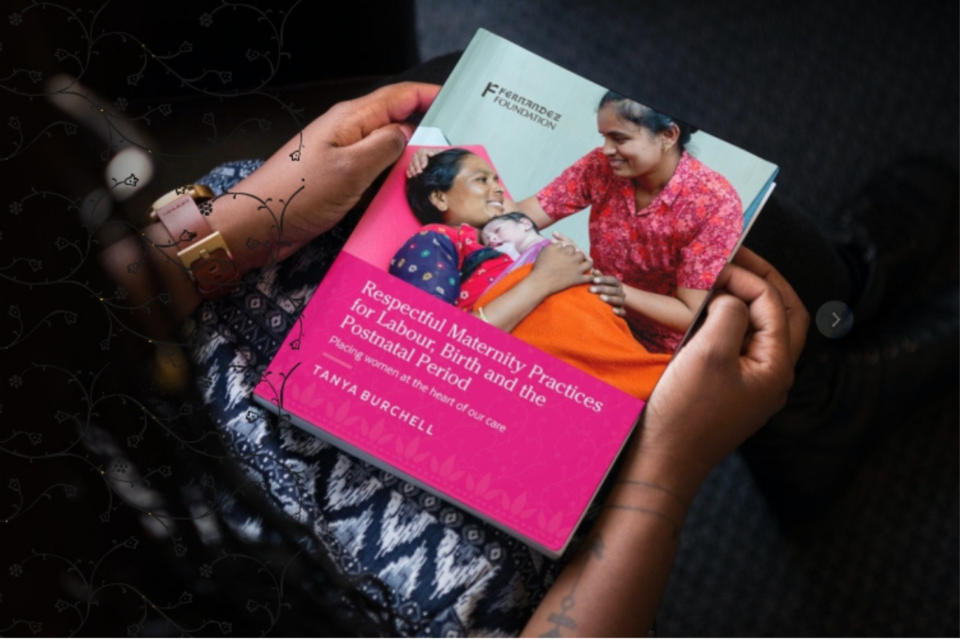There have been few books written specifically for midwives educating in India. Until now they have often had to use texts that have come from western sources and are not relevant to their needs and population. Tanya Burchell has rectified this by writing a book specifically to reach the population of obstetricians, midwives, nurses and future caregivers across South Asia, based on her personal experience of working there.
_______________________________________________________________________________________________________________________
Writing a text book for maternity carers in India and beyond
I have worked in medical care since 1996 and in maternity care since 2002. I admit that maternity care was not a focus that I was particularly interested in, but a passion and love for the work soon developed. Now I would not want any other job! Currently, I delight in encouraging that passion by working alongside and teaching future caregivers and caregivers.
I love caring for women and want them to receive the best care possible and I try to keep up-to-date with what ‘best care’ is, by reading latest research and working out how to apply this into my practice. I enjoy sharing this love and passion with others, so I decided to write the book Respectful Maternity Practices for Labour, Birth and the Postnatal Period: Placing women at the heart of our care to meet a need for caregivers in India and South Asia. The title includes the subject of respectful care because respectful care is the most basic, easiest, cheapest and most important care that we can provide in maternity, and yet, it is often the part of care that is missed. By ‘Placing women at the heart of our care’ (also on the front cover of the book), respect should come naturally and easily.
I have lived in India, Bangladesh, Cyprus and the UK and have loved exploring the many differences in cultures, skills, attitudes and beliefs. These differences influence what we eat, when we travel, beliefs about health, and how we react to certain situations. These differences do not stop when a woman becomes pregnant. Therefore, books that address maternity care should be different in different countries. Statistics are different for a start. Many books around the world use statistics based on the UK, the whole world or the USA. This is not applicable for every nation. Secondly, the woman is not only pregnant, but she is a human being who has her own individual beliefs, within a community and country which have certain cultures and attitudes. These need to be addressed so that women can be treated as individuals. Every textbook makes assumptions and generalises, including mine. To be perfect, a textbook should be written for each individual women and her beliefs. However, this is not possible, so my book is specifically based on the cultures, beliefs, attitudes and skills that I have encountered in South Asia.
The aim for this book is for it to be used by anyone who is interested in women’s health but particularly for obstetricians, nurses, midwives and all students across India and surrounding countries. The book is written in such a way, as to be less like a textbook, and more like someone sitting next to you to provide guidance. It includes graphics sourced globally to ensure it is accurate, real and easy-to-understand.
I am delighted that Dr Shawn Walker from King’s College, London and Director of the Breech Birth Network collaborated on the chapter on breech births, which includes step-by-step photographs of women giving birth. It gives the most up-to-date information for caring for women with babies in the breech position.
My hope is that readers will catch my passion for placing women at the heart of all care and will do likewise. I would love to see maternity units across the world full of passion, up-to-date practices, friendly environments, staff who love their jobs, great teamwork and happy women and babies.
Tanya Burchell
International Consultant Midwife
July 2022



4 comments
having had the honour of visiting and teaching at Fernandez with the midwives and educators twice now, most recently this June, visiting with some midwifery students, this is much needed valuable resource. WE can’t get it on UK Amazon though! The respect that is evident in care at Fernandez in amazing and is imparted to their students so well.
Hi Natasha,
Thank you for your comments. It’s available on Amazon India: amzn.to/3yyPi9X so if you know anyone coming to the UK from India, that’s the best way to buy it. It would be a great resource if you are heading back out to Fernandez or some other exciting place!
Tanya!
Your book is a treasure trove Tanya and I firmly believe should be read by medical, and midwifery students. I am convinced it should become a standard textbook for all OBGY postgraduates and be considered a MUST for every qualified midwife who has not had the privilege to use the book while she was training. I realise the chapters are written with great sensitivity keeping in mind the “cultural” factors of Asian countries and kudos to you for doing that- as nothing like this has ever been written before and this is much needed. Congratulations and thank you for this brilliant piece of work.
Thank you. It wouldn’t have happened without you!
Comments are closed.